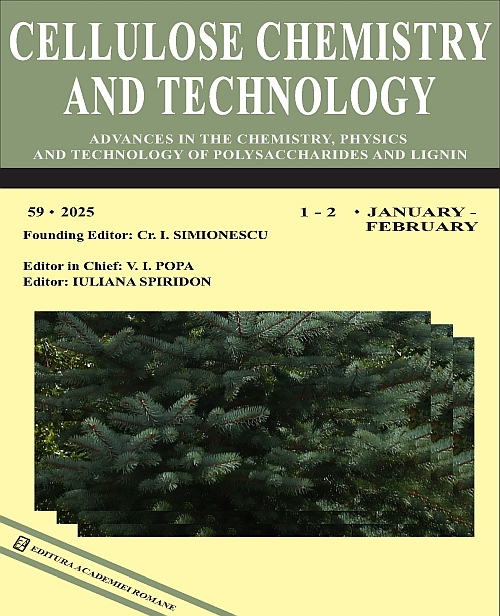|
Title
Potential of melon peels for the production of cellulose degrading enzymes from Bacillus subtilis strain 2I in submerged fermentation
Authors
AQSA TAHIR, ATIA AFZAL, IRFAN AHMAD, DALIA SUKMAWATI, MARCELO FRANCO,
TRISANTI ANINDYAWATI and MUHAMMAD IRFAN
Received
October 8, 2024
Published
Volume 59 Issue 1-2 January-February
Keywords
cellulase, CMCase, FPase, Bacillus subtilis, melon peels, optimization, response surface methodology, central
composite design
Abstract
Cellulase is known to be an important enzyme in the field of industrial biotechnology. In the present study, cellulase
production by Bacillus subtilis strain 2I was statistically optimized using melon peels in submerged fermentation. During
initial optimization by OFAT, the highest CMCase (40.892 IU/mL/min) and FPase (98.398 IU/mL/min) activity were
obtained at 24 h incubation time, 3% substrate concentration and 2% inoculum size. Six nutritional variables (X1-X6) in
the cellulase production medium were screened through the Plackett–Burman design (PBD), out of which two variables
were identified as significant for each CMCase and FPase. Further optimization by response surface methodology (RSM)
through CCD indicated that K2HPO4 (0.25%) and KH2PO4 (0.5%) were significant for CMCase, while yeast extract
(0.1%) and ammonium sulphate (0.275 %) were significant for higher FPase production, respectively. Characterization
revealed cellulases displayed maximum activity with 1% substrate at 50 ℃ and pH 7. Furthermore, higher activities were
observed in the presence of Ca+2 and Fe+2. Among solvents, n-hexane, ethyl-alcohol and butanol enhanced cellulase
activity, while SDS showed inhibitory effects. Cellulases showed activation energy (Ea) of -11.013 and -10.53 kJ/mol,
enthalpy change (∆H) of 8.32 and 7.84 kJ/mol, and entropy (∆S) of -16.50 and -15.54 kJ/mol for CMCase and FPase,
respectively. Additionally, cellulases produced in the current investigation could be utilized for cheap and effective
enzymatic saccharification of lignocellulosic biomass.
Link
https://doi.org/10.35812/CelluloseChemTechnol.2025.59.06
|



